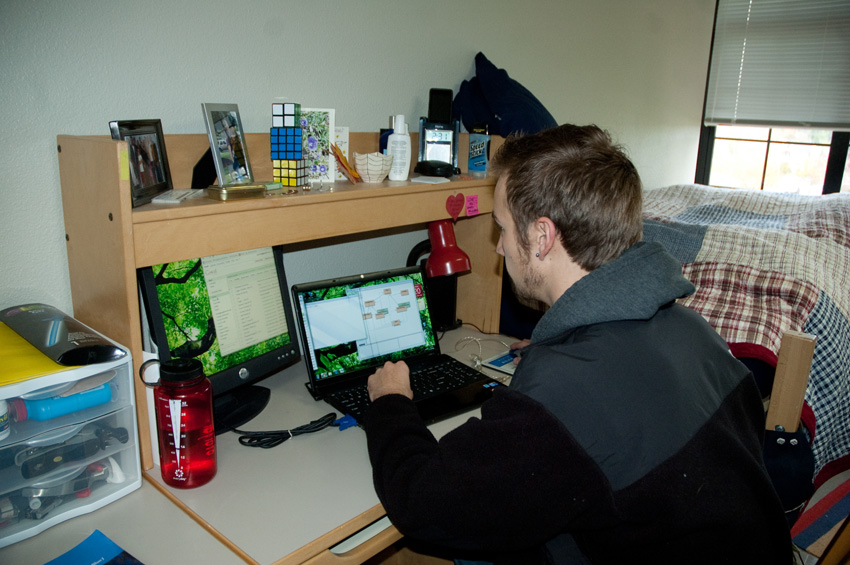
Since its public introduction in the 1990s, the Internet has become an increasingly integral part of everyday life for most Americans. It holds seemingly limitless possibilities for expanding our power to communicate, gain and share knowledge, as well as myriad other fun and informative activities. But how great is the Internet anyway?
Although the Internet can be a huge time saver, it can also be a huge time suck. I love the Internet as much as the next person, but mostly because it provides a great means of procrastination. If you need a quick fact or source for a paper the Internet is great, but if you need to write that paper the Internet can quickly become a distraction.
Much of society’s communication is becoming Internet-based as well. We email, or Facebook or tweet, and less and less do we feel the need to meet face to face. Almost all aspects of our social world have been invaded by the Internet. Even interactions that should be face to face, or at least done by phone, are now becoming Internet-based. People conduct business via the Internet; they talk to friends and family and some people even date online.
It is worrisome that people have become so dependent on technology as a means of communication. Admittedly it can make things easier, but it is also very degrading to the way society functions. Since so much of peoples’ social world is on the Internet, they lack certain necessary social skills.
Some young people are not as good at talking to one another as they might have been without the Internet. They lack the skills to have important, difficult conversations in person, and would rather just break up or fight on Facebook.
Although the idea of avoiding awkward or uncomfortable situations through any possible means is appealing, it is important that people lean how to effectively deal with conflict and confrontation. The Internet enables avoidance and excessive meanness, without helping users develop the skills to deal with confrontation face to face when they inevitably find themselves in such situations.
Another branch of this trend is the rapidly increasing popularity of online schooling. Ever so slowly, teachers are being removed in favor of computers. Where before, ten teachers were needed to teach 200 students, now one teacher can. Not only might this lead to a less fulfilling learning experience for both student and teacher, it also negates one of the most valuable relationships people develop in their early lives: the close bond that comes from learning and being taught by a great teacher.
Furthermore, the growing dependence on the Internet has also had devastating effects on peoples’ ability to speak and write. The English language has become filled with abbreviations and improper grammar, which is seen as acceptable by the increasingly Internet-based community. Employers seem to care less about prospective employees’ ability to speak correctly and write well, and more about how well they know their way around a computer.
While it is important to acknowledge everything the Internet makes possible for society, it is also important to be wary of how much we depend on it. It is fine to use the Internet as a supplement to our everyday lives, interactions and learning; however, it should by no means become a substitute.
The unique abilities for communication and capacities for fulfilling relationships that human beings possess cannot and should not be disregarded in favor of faster but colder methods of communication. If they are we run the risk of causing irreparable damage to certain parts of our nature.
[PHOTO COURTESY/TEDDI TOSTANOKSI]

